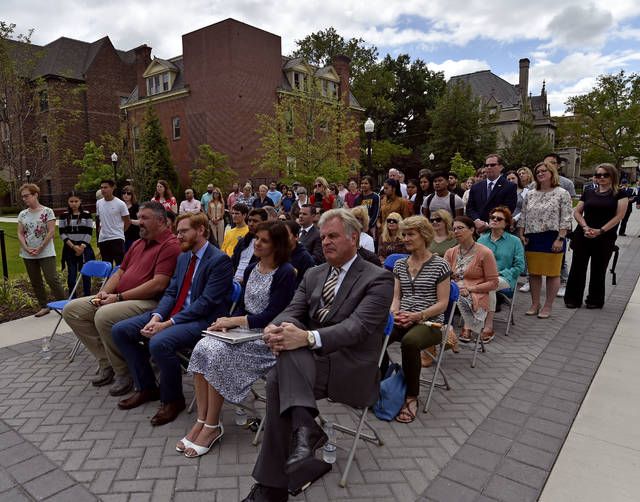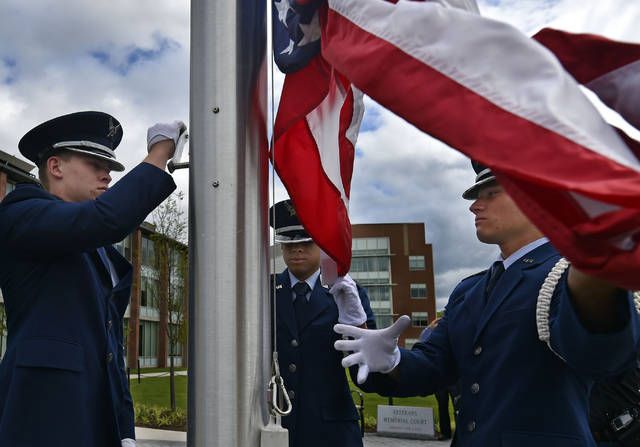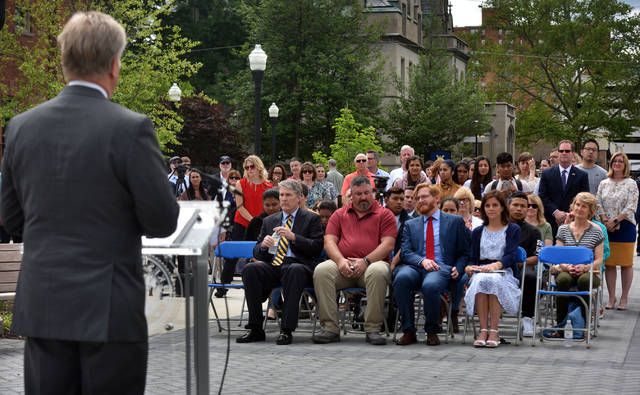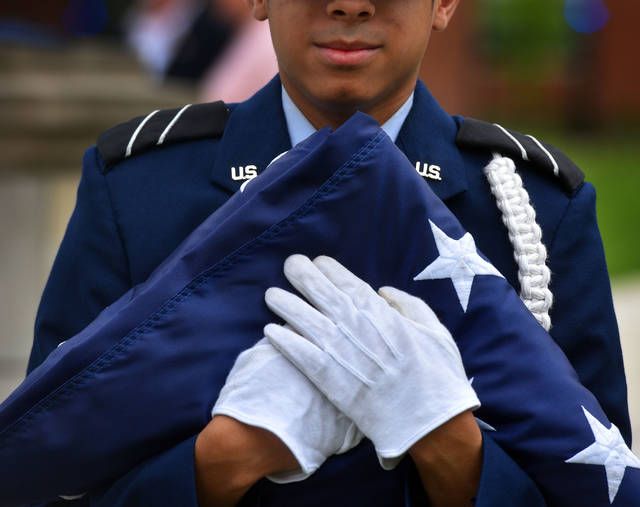Click here to subscribe today or Login.
WILKES-BARRE — One person recounted how graduates had died serving their country. Another noted it was not victory — by D-Day, the only question was how to win — it was the promise of liberation that made D-Day so pivotal.
A veteran cited the need to serve even after leaving the military: “If we don’t, who will?”
Then, Wilkes University President Patrick Leahy read from a 2014 essay by Douglas Brinkley in a LIFE: D-Day publication commemorating the 70th anniversary of the Normandy invasion.
“The following day, June 7, newspapers were full of mind-boggling factoids and statistics about how D-Day had succeeded. One number that didn’t appear was 36,525.”
The number of planes? Ships? Soldiers on Omaha Beach?
No.
It is the number of days in a century, and Brinkley argued that in the 20th century, none were more important than June 6, 1944. All other nominees, Leahy quoted, “flatten when one asks, ‘What if D-Day had failed?’”
Wilkes combined the D-Day commemoration with the dedication of the university’s Veterans Memorial Court on Thursday morning under a mix of clouds and sun, the breeze strong enough to keep the flag flapping after members of the school’s ROTC detachment raised it in the center of the Fenner Quadrangle.
The location, Leahy said, was deliberate. “This is both the literal and figurative heart of our campus,” he noted, which means nearly every student, faculty, staff and visitor are likely to walk past the flags on one side and stone veterans marker on the other. “They might,” he hoped, “stop just for an instant and remember the people who served.”
“Let’s let the examples of veterans past, present and future inspire our own acts,” he added.
Vice President of Student Affairs Paul Adams opened the ceremony recalling two university graduates, one who died from crash injuries sustained after flying his damaged aircraft away from a populated area rather than ejecting, the other who joined the Army Rangers despite repeated rejections due to athletic injuries and served in Afghanistan for six tours before being killed near the end of the last one.
Adams also recounted a visit to the the Utah Beach invasion site, where he was at first disturbed to see his young children laughing and playing in the sand and water where soldiers died.
He quickly changed his mind.
“It was now a place of laughter and joy. They fought for that,” Adams said.
Jonathan Kuiken, assistant professor of global cultures, said most leaders believed the German war machine “was broken” before D-Day, and that the United States could have spared lives by opting to arm and equip the Soviets to finish the job, but that was not the goal in Europe.
“The promise that we were coming to set them free had not yet been met,” he said. The Allies invaded to fulfill that promise: “They fought not just to win a war, but to build a better future.”
Army veteran Kelly Egan, a 2019 Wilkes graduate, was brief in giving a veteran’s perspective. “Service doesn’t stop when our service ends. We need to continue to give to the community that gave so much to us.”
Leahy finished his talk by quoting Dick Winters, the central figure in the TV series “Band of Brothers,” which told the saga of Easy Company’s journey from D-Day through the war.
In a clip aired as part of the fictionalized story, the real Winters recalled a question a fellow veteran was asked by a grandson: “Grandpa, were you a hero in the war?”
The answer, Winters said, was “No, but I served in a company of heroes.”
Adams closed the ceremony by quoting from a “prayer” President Franklin D. Roosevelt offered in a radio address on D-Day.
“They fight not for the lust of conquest. They fight to end conquest,” he intoned.








